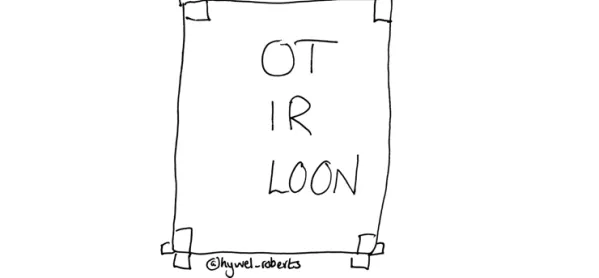The fog clears, and here we are.
We have had enormous trouble and now our ship, The Lucy Tania is being crushed by ice. Just near Wolverhampton. It’s been moments since we established ourselves as a freight-carrying explorer ship circa 1900. It’s all gone a bit Pete Tong, and we draw ourselves away from our regular shipmate jobs of cleaning the decks, mending the sails, navigating polar seascapes and preparing carrots for soup, as the Captain, the Honourable Captain Dawson, has called a meeting.
(It’s always a risk, asking children what a noble sea captain should be named. Meg had suggested Captain Dawson. No one moved a muscle, so I assumed it wasn’t the Head’s surname).
Oh, and:
(Amber, in the pigtails, had suggested the name of the ship, The Lucy Tania, which was such a close call to a real historical vessel that I raised a Roger Moore in her direction, but she stared back blankly. On checking, she just liked the name. She then clarified, without invitation, that it was the lady at the front of the ship. Kate Winslet, I think to myself as Amber strikes a pose: shoulders back, chin up, seeking direction: a figurehead. Clever Amber).
"Listen," I say. "Listen to the ice crushing us. Creaking our hull, breaking our spirit."
A chunky boy who could be mistaken for claiming a pension, such was his shuffling gait, steps forward. He practically places half a smoke behind his ear for later.
"Yes…?" I venture, anticipating his input.
I read his name label: Gregor. He’s crossed it out and written "Greggs". He’s nine, the wag.
Like some swaggering pre-teen Columbo (Google it, kids!), he mumbles, "I don’t know if this is going to help, but we’re carrying a lot of freight. There may be something we can use to help us out?"
And there’s the moment of the quiet child investing into the story being laid out for them. It’s worth noting as it was this, or a worksheet on ‘Transport’, the next topic for this particular class, that’s hooked them in.
If we are going to search the dark bowels of our ships hull, what do we need? Of course. Lanterns! Hold them up. Hold them high. It’s as dark as hell down here. The shadows jump around us, but we can see the crates we carry. They’re not ours, but they have funded our journey. What’s in the crates, I ask, and the suggestions, because that’s what they are, come thick and fast. Some need checking, some need talking about and some, as we clearly understand, are incongruent to the 1900s. We sort it.
I move to the flipchart board and draw a large rectangle shape. I label up my crate with some letters and say: "Here is the final crate. It is, perhaps, our last hope for escape from this icy grave."
The Chunky Detective (TV Execs, are you listening to this?) steps forward once again, and the children almost part like Red Sea waves to let him through.
"Greggs?"
"I don’t know if this is helpful, but…"
He approaches the flipchart and points to the arrangement of letters I’ve written:
OT
IR
LOON
"Go on," I encourage as sea captain, Travelling Teacher and human.
"I don’t know if this is going to be helpful, but, that…"
(Everyone is leaning in, just like how what teaching should be and that)
"…that’s a hot air balloon, that is."
He’s got it. My plan has worked. The hot air balloon. Our salvation from the jaws of frozen death.
There’s a gasp, as another boy, Benny, tells me he is an expert on hot air balloons as he’s seen one in a movie. "Our time is now," I confide in him.
Because it’s not long until lunchtime, we need to get a message to our rescuers pronto. Benny, Amber and Greggs are our heroes and they stand in their masking-tape-defined basket. It’s time to go, just like that bit at the end of The Wizard of Oz.
We have all written notes (to be written up later in their Literacy books, Ofsted fans) and hand them to our intrepid, brave and selfless basket-crew.
I hand Greggs the clutch of letters and say to the three of them:
"Place these on your person. They need to be found on your bodies."
Amber screams in delight.
Benny looks into middle distance, a cursed hero.
Mr Jones, the head, spits his closed-cup brew.
Greggs steps forward and announces, "I don’t know if this is going to be helpful, but I feel this basket will be too heavy. I’ll step away."
He then applauds Amber and Benny.
And I applaud him.
And the fog descends.
Those quiet, thoughtful children sometimes don’t know when to step forward. In my experience many of them want to join in, participate, and, like Greggs, help. Many of them do it in their heads while you’re with them. Some of them say it out loud.
Hywel Roberts is a travelling teacher and curriculum imaginer





